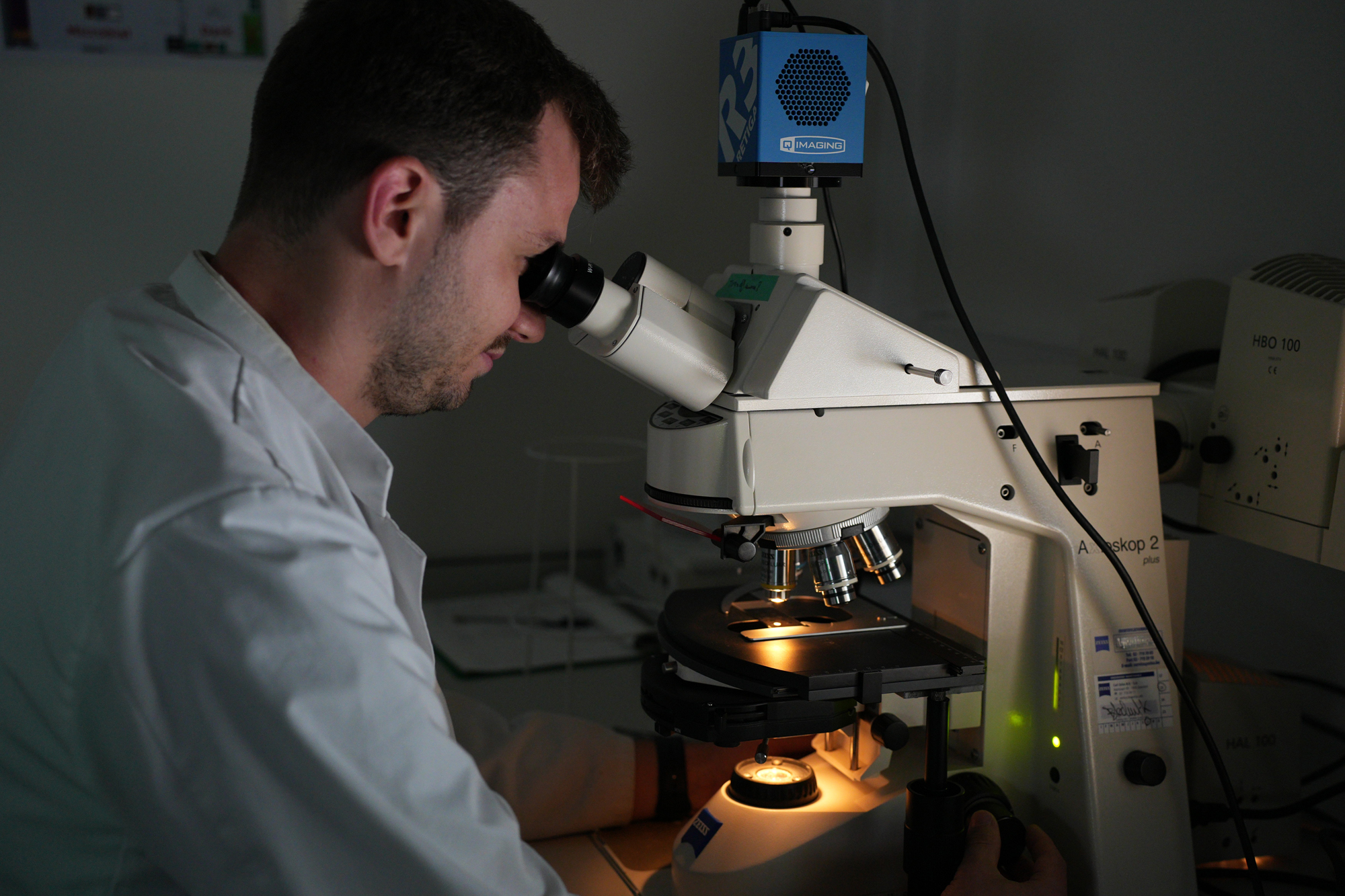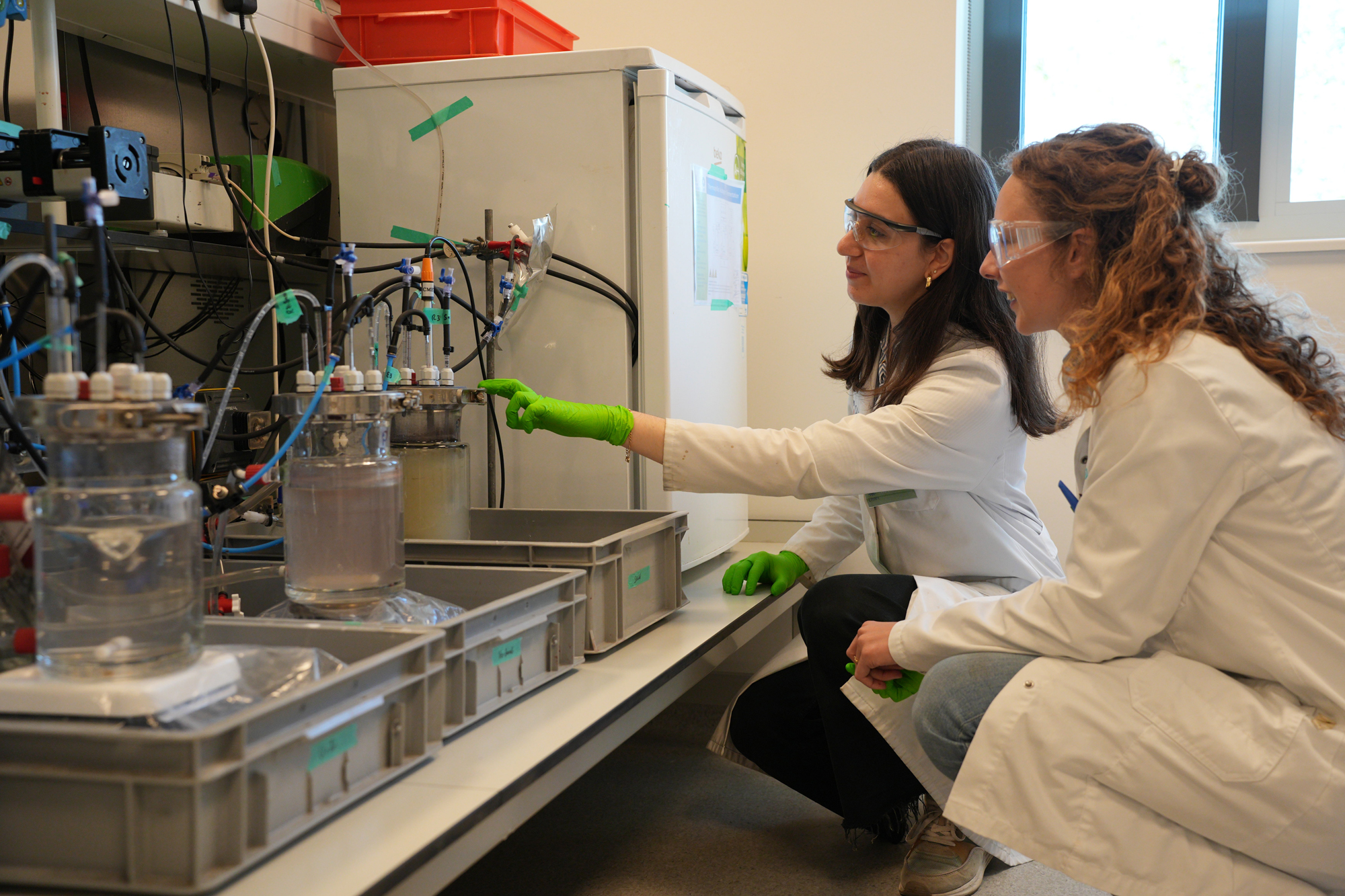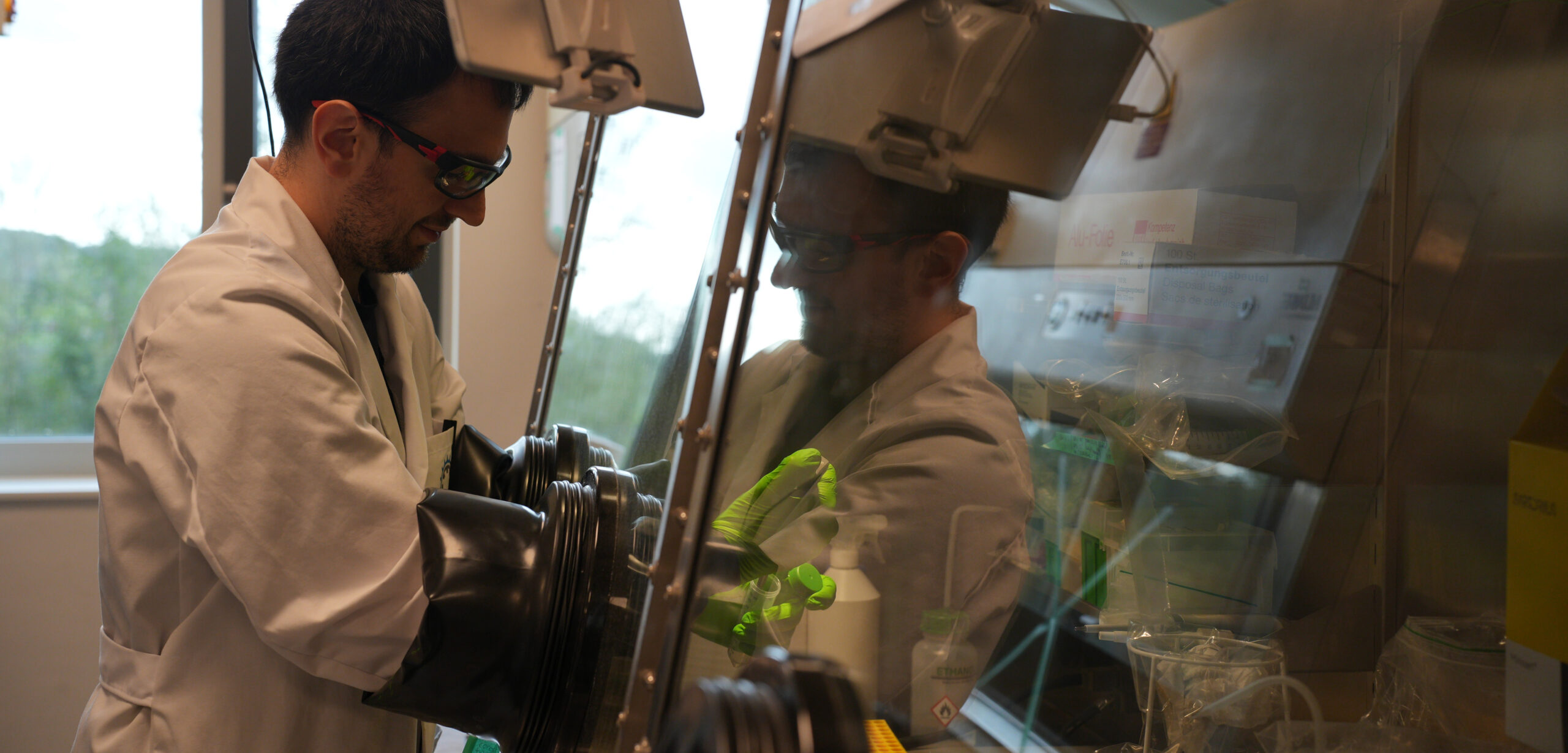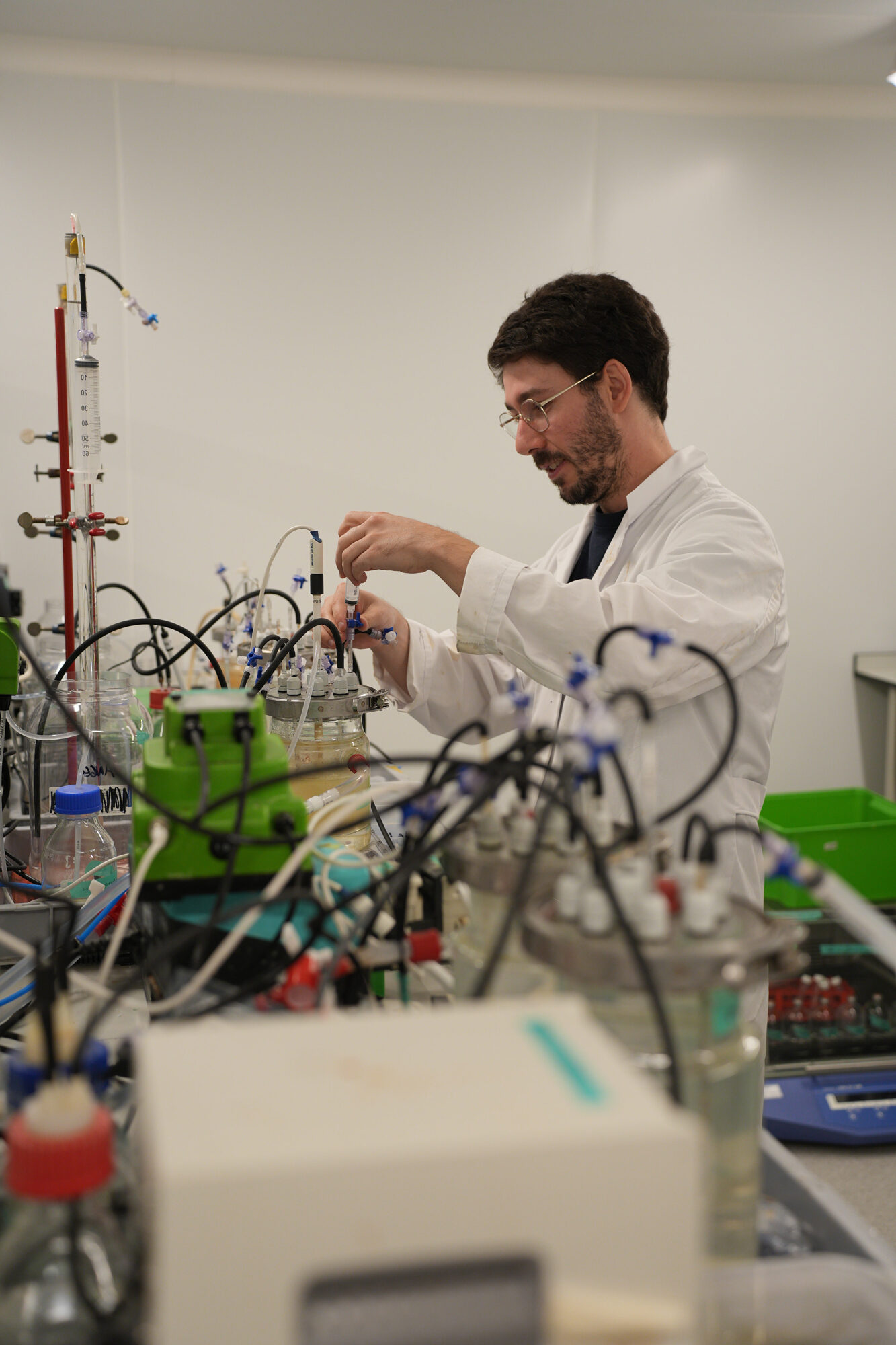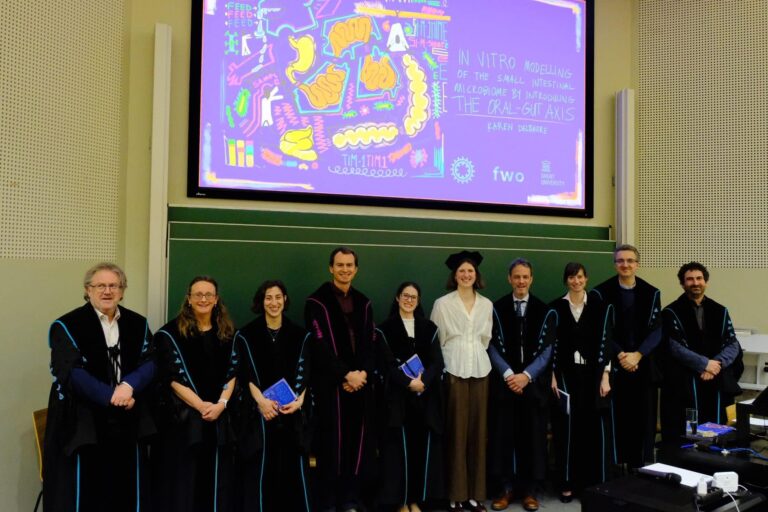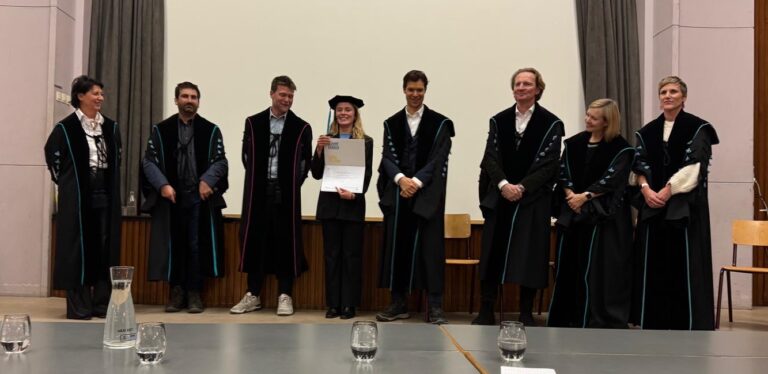The Center for Microbial Ecology and Technology (CMET) is a part of the Faculty of Bioscience Engineering at Ghent University. CMET is specialized in the study and application of mixed microbial cultures or communities. A microbial community consists of several populations, which each represent a functional biological entity and thus a diverse metabolic capacity. The assemblage of these biological entities represents -when properly organized- a powerful resource. CMET researchers focus on the optimal management of these microbial resources. We define it as Microbial Resource Management (MRM), enabling us to develop novel products and (technological) processes to improve our environment or human health in the most sustainable way.
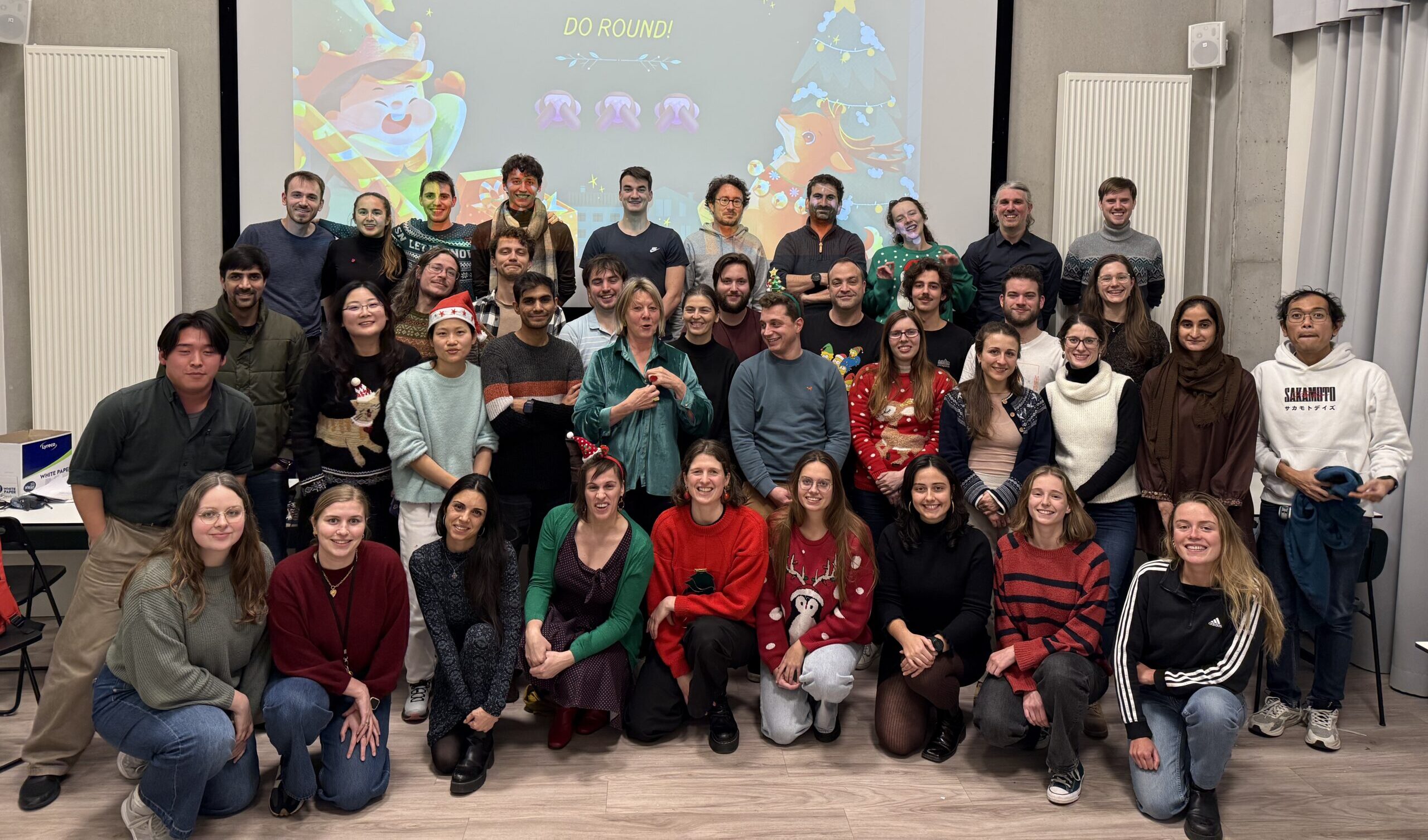
Research domains
CMET focuses on areas like disease prevention, applied microbial ecology, host-microbe interactions, life support in space, microbial electrocatalysis, resource recovery, and water treatment.
-
4/02: Public defence of the doctoral dissertation of ir. Karen Delbaere
The title of the doctoral dissertation is “In vitro modelling of the small intestinal microbiome by introducing the oral-gut axis“ The public defense will take place on the 4th of February 2026 at 17:00 in auditorium Oehoe, at the faculty of bioscience engineering, Ghent University (Auditorium E1, building E, Coupure Links 653, 9000 Ghent). A […]
-
9/01: Public defence of the doctoral dissertation of ir. Wannes Nauwynck
The title of the doctoral dissertation is “Droplet microfluidics: a toolbox for microbial ecology” The public defense will take place on the 9th of January 2026 at 17:00 in auditorium Oehoe, at the faculty of bioscience engineering, Ghent University (Auditorium E1, building E, Coupure Links 653, 9000 Ghent). A short abstract of the doctoral research […]
-
15/12: Public defence of the doctoral dissertation of ir. Britta De Pessemier
The title of the doctoral dissertation is “Multi-Omics Insights into the Skin Microbiome of Healthy and Diseased Skin.” The public defense will take place on 15 December 2025 at 17:00 in the Feestzaal, Auditorium A.1 at Campus Coupure, Coupure Links 653, 9000 Ghent. A short abstract of the doctoral research The skin is one of […]
-
Marie-Laure Machiels wins Water Technology Award
“I’m very happy and honoured to share that earlier this week I received the Water Technology Award 🏆 for my MSc thesis during the Academia Meets Industry (AMI) event, organised by watercircle.be , B-IWA (Belgian-International Water Association) and Cluster H2O at VIVAQUA. This event highlights people who make an impact in the water sector, so […]
